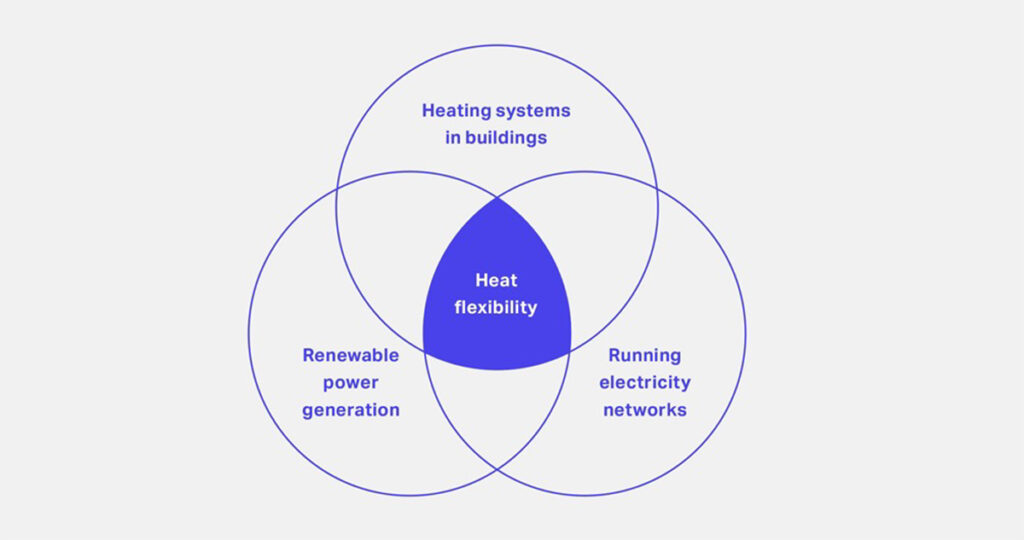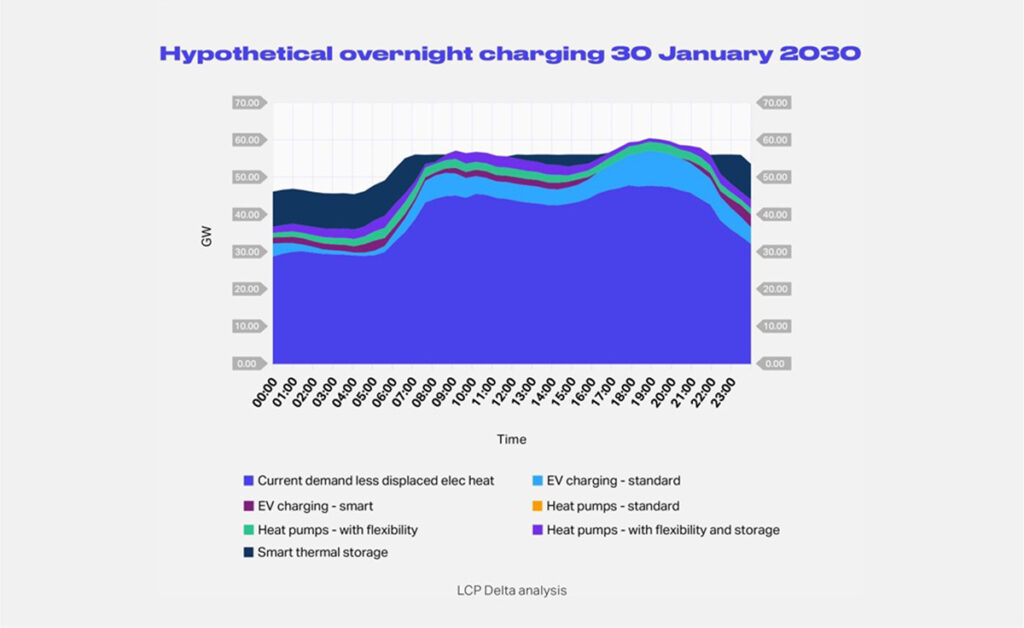To handle the additional renewables and the increased demand for electricity in 2030, the energy sector can build out the network infrastructure or flexibly use smart demand products. The more that flexibility is utilised on the demand side, the less the UK needs to spend on network infrastructure, curtailing renewables and using the capacity market for fossil gas power plants. The electricity system benefits overall by reducing peak demand in winter.

This means that the future of heat requires designing low carbon electric heating to provide heat to buildings and flexibility to the power system. So how does heating flexibility work? There are multiple ways to provide flexibility in heating. One option is to use smart thermal storage, working with or instead of heat pumps, to shift heating demand. Smart thermal stores can consume electricity at times of lower wholesale prices, which are increasingly at times of higher renewable generation.
Thermal Storage UK has published a new report on the potential for heat flexibility by 2030. We worked with consultants LCP Delta who estimated that the UK could use smart thermal storage in 2.4 million homes to reduce peak electricity demand on the coldest day of the year by 1.6GW by 2030.
This peak demand reduction from smart thermal storage could increase to 4.1GW if the benefits of flexibility to electricity networks were reflected in pricing. With the right reforms to the power market to recognise the value of this flexibility to the electricity networks, we expect smart thermal storage to further flatten demand. We offer 16 recommendations in the report, which we have shared with policymakers, including those working on the Review of Electricity Market Arrangements.

Heat flexibility is an underdeveloped area of thinking in the energy sector. We think it is better to acknowledge this, conduct further work to refine the analysis and consider the interaction with potential power market reform options. We welcome feedback on any or all of the assumptions we have made. You can find the report and the technical analysis from LCP Delta on the Publications section of our website.
For more information please contact:
Tom Lowe, Founding Director, Thermal Storage UK
Email: tomlowe@thermalstorage.org.uk